Libertarian Social Democracy: Justice As Minimizing Domination
THIS ESSAY IS A SEQUEL OR CONTINUATION OF MY PREVIOUS POST The Genealogy of Liberty: Positive Liberty, Negative Liberty, & Republican Liberty. THUS, IT MAY BE MUCH EASIER TO UNDERSTAND THIS POST IF YOU HAVE PREVIOUSLY READ THAT ONE. I HAVE TRIED TO MAKE THIS POST STAND ALONE, BUT THE UNDERLYING THEME/CONCEPT AND PRESUPPOSITIONS ARE DEALT WITH IN MORE DETAIL IN THE OTHER POST.
The goal of a political system or social order, whether that be a State or a stateless form of governance, ought to be to guarantee justice as much as possible. A libertarian is someone who defines justice as the maximization of liberty. The libertarian believes that the goal of the political system ought to be to ensure the maximum degree of freedom possible, with equal liberty for all. The term liberal essentially means the same thing, the difference being in how liberty happens to be conceived.

Right-wing libertarianism embraces the concept of negative liberty—liberty as non-interference by others. Right-libertarianism, with its love of negative liberty, will hold that liberty can best be maximized by a system of laissez-faire or free enterprise, where the government does not intervene in the voluntary interactions of individuals. Anarcho-capitalism is the purest form of such right-libertarianism and seeks to abolish the State by replacing it with private law, private courts, and private police; holding that these institutions that establish and maintain social order ought to be private and competitive, such that each individual in society can voluntarily choose to purchase protection and arbitration services from whichever company they prefer. Since the State would be abolished, and all individuals would choose their own governmental institutions voluntarily through free trade, all interactions would be formally voluntary and free as far as negative liberty is concerned.
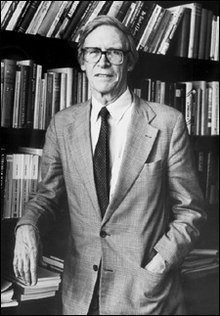
The left-leaning liberal, on the other hand, wants to maximize positive liberty—liberty as the capacity to act upon one's will—and so they will say that men must be guaranteed certain necessities (e.g. food, shelter, some spending money) in order to guarantee that they have the capacity to pursue their own real desires and are not prevented from doing so by poverty. Some form of socialism with a totally egalitarian distribution of wealth—and not every form of socialism is such— arises when you take this sort of liberalism to its logical extreme, attempting to maximize positive liberty.
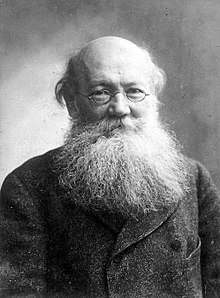
Classical anarchists tried to reconcile these two competing notions of positive and negative liberty—liberty as non-interference vs. liberty as capacity to do what one wants. The anarchists did so by combining the two extremes of positive and negative liberty into a single conception of comprehensive liberty. Thus, they came to advocate the attainment of maximum negative liberty by abolishing the State and any other institutions with the power to interfere arbitrarily, alongside the attainment of maximum positive liberty by totally equalizing conditions via abolition of private property.

For the purposes of this essay, I am particularly interested in the classical republican (or civic republican) conception of liberty as non-domination. This, of course, is not the only valid conception of liberty, but it is the form of liberty that I believe political systems should primarily aim to maximize. I am a libertarian/liberal, which means that I hold that the raison d'être (reason for existence) of a social order or political system ought to be to establish justice via the maximization of liberty. If I were to embrace this republican conception of liberty as non-domination, what would that imply? If I advocate a libertarian social order, a social order aimed at maximizing liberty—and liberty is defined according to the civic republican notion of freedom—, then what would an ideal libertarian social order look like? What might a civic republican libertarianism look like and how would it differ from right-libertarianism, left-leaning liberalism, and anarchist left-libertarianism? Such is the topic of this essay.
Let's start by unpacking the civic republican conception of liberty. The civic republican defines liberty as the absence of domination. Of course, now we need to define the term domination. The civic republican holds that a person is dominated to the extent that another person has the capacity to arbitrary interfere in their actions, such that their actions are ultimately determined not by their own individual will but by the will of another. Suppose that a person is a slave but has a benevolent master that never makes them do anything that they do not want to do, so that their master never interferes in their voluntary actions. According to civic republicanism, such a slave is dominated and unfree to the extent that their master still retains/reserves the right to arbitrarily intervene at any point, even though they never do so intervene. The right-libertarian concept of negative liberty, on the other hand, leads to the absurd notion of a free slave: the master reserves the right to arbitrarily intervene but does not do so, leading to a scenario in which domination occurs without intervention/interference.

I have run across several thinkers who appear to advocate a civic republican libertarian position, the most obvious of which is Frank Lovett. Lovett argues for defining justice as minimizing domination. In his estimation, justice is the maximization of liberty via minimization of domination:
"One alternative worth exploring is something I call justice as minimizing domination. Although some of the details will be discussed later on, the basic idea is very simple: namely, that we should regard avoidable domination as seriously unjust, and therefore that we should try to minimize domination so far as possible....
"Suppose we think of political freedom or liberty as the absence of domination, as others have suggested (Pettit 1989, 1997, 2001; Skinner 1990, 1998). Then we can understand justice as the promotion of freedom so understood—a theory that is both conceptually elegant and rhetorically compelling... I am sympathetic with this interpretation of freedom..."—Frank Lovett (Domination and Distributive Justice)
What interests me about all of this is that these two ideas—liberty as non-domination and justice as minimizing domination—together create a theoretical framework that logically seems to lead to what I call libertarian social democracy. Let's call this combination of republican liberty (freedom as non-domination) and Lovett's theory of justice (justice as maximizing liberty/justice as minimizing domination) civic republican libertarian justice. From henceforth, I will use civ-libertarian as shorthand for civic republican libertarian; by civ-libertarian I do not mean to indicate civil libertarianism but rather civic republican libertarianism. Logically, this civ-libertarian justice leads not only to social democracy but specifically to a post-capitalist/post-socialist form of social democracy with communal-ownership of land and universal basic income, a point that will be elaborated on later. Basic income is the means of liberating the people from wage-slavery and preventing domination by bosses, as well as liberating people from the possibility of manipulation by others who happen to be financially better off. If the goal of the body politic, whether State or non-State, is to guarantee civ-libertarian justice, it logically follows that the body politic ought not only to intervene in order to protect citizens from external interference in the form of direct physical coercion, but also that government ought to pursue policies that aim at maximizing republican liberty by minimizing domination. People ought not to be dominated by gangs, politicians, bosses, landlords, moneyed elites, corporations, relatives, lovers, cops, or anybody else. The sole purpose of establishing a social order is to protect people by creating institutions and enacting policies that have the effect of minimizing domination.
To be a libertarian that adheres to this classical republican conception of liberty means that one must be comprehensively libertarian in a way that most "libertarians," even most anarchists, seldom are. Civ-libertarianism requires more than just social libertarianism or economic libertarianism. A civ-libertarian will be all kinds of libertarian:
- Social Libertarianism: Libertarianism must take the law of equal liberty as its core principle. People ought to all be guaranteed the utmost liberty possible, consistent with equal liberty for all other individuals. "For if men have like claims to that freedom which is needful for the exercise of their faculties, then must the freedom of each be bounded by the freedom of all.... Wherefore we arrive at the general proposition that every man may claim the fullest liberty to exercise his faculties compatible with the possession of like liberty by every other man."(Herbert Spencer, Social Statics, Ch. 4, Sect. 3) Governmental interference in the affairs of an individual is only justified if that interference is aimed at eliminating domination or preventing the emergence of domination. Thus, we ought to legalize marijuana and LSD, reform or abolish policing, legalize prostitution, abolish prisons, legalize public nudity, and so on.
- Economic Libertarianism: Each individual must be allowed to "vote with his dollars" and determine for himself what goods and services he would like to use and from which company he would like to purchase them. Interference in the market is only justified when it is needed to guarantee the maximum liberty to each individual—e.g. government may justifiably intervene in the market to abolish a monopoly if a naturally monopoly arises, thereby putting the monopoly in a position of domination.
- Diplomatic Libertarianism: The truly libertarian republic must have a non-interventionist foreign policy, it must be anti-war, and it must be peace-seeking in its foreign relations. This republic will help to form alliances, reach peace-agreements, and will only go to war out of necessity, never out of ambition or desire to expand. It will neither dominate nor allow itself to be dominated.
- Social Welfare Libertarianism: The goal of the libertarian republic must be to maximize freedom. This means that the republic ought to implement libertarian welfare programs, aimed at eliminating dependency, so as to free individuals from wage-slavery, debt slavery, and such. The republic ought to encourage and promote workplace democracy. Healthcare must be guaranteed as a fundamental human right. Every citizen ought to be supplied with a universal basic income to ensure that they are not dependent on any other individual for their survival.
- Political Libertarianism: The political liberty of the individual requires democracy. The libertarian social democrat looks to deliberative democracy, radical republicanism, assembly democracy, ranked-choice voting, representative recall, consensus democracy, and digital direct democracy as possible avenues for exploring political liberty. One implication of this civic republican approach is that political systems need to be participatory. Rules ought to be non-arbitrary and uniform, although the people should be able to excuse disobedience on a case-by-case basis. The civil law ought to prohibit theft, but society ought to opt not to restrain or punish one who steals food due to need. The justification of the laws or rules of a society comes from the people having a participatory role in the deliberative decision-making process that creates those rules. If the people have no role in decision-making, there can be no consent of the governed. The amount of domination by government is directly correlated to the level of the lack of consent of the governed. A totally unpopular monarch represents total domination, whereas democratic confederalism or consensus democracy represents a total elimination of domination by government. If any domination is ever to be justified, it can only be justified on the grounds of eliminating or preventing the emergence of greater domination elsewhere. Such a justification is a matter of facts, such that it could theoretically be the case that no domination could ever be justified. Personally, I do not think that this is the case. A parent having some level of dominion over their child may be necessary, such that a parent ought to be able to tell their child not to play too close to the open fire.
- Philosophical/Ideological Libertarianism: Not only should we guarantee that people are free to smoke pot, engage in consensual gay sex, and walk around naked, but the government should also actively promote science and science-based ethics so that "false consciousness" and unscientific ideologies do not burden people with spiritual tyranny and psychological baggage. The government should guarantee universal education, so that all citizens are educated in the epistemology of science and well-versed in the philosophy of ethics, ensuring that they are not dominated by false cultural prejudices that stem from ignorance. To make someone believe that they will burn in hell or that they have committed some horrible crime when they have really done nothing wrong is in fact nigh criminal itself. While every citizen must be allowed to believe in religion or disbelieve as he or she feels compelled by reason, the government ought to ensure that every citizen is also well-informed, fully educated in science and philosophy, and thus in a position to be free to make a fully-informed decision.
Civ-libertarian justice requires a form of libertarian social democracy, distinct from both left-libertarianism/right-libertarianism and from conventional social democracy. As stated above, republican liberty requires both social welfare programs and participatory democracy. Civ-libertarianism requires more radical participatory democracy than conventional social democracy does, and it is inherently anti-capitalistic. Capitalism is a system where a relatively small class of capitalists dominate the economy and the majority of the populace has little choice but to work for some capitalist as a wage-laborer. Civ-libertarianism demands that people be freed from domination by bosses and landlords, which requires abandoning capitalism. The civ-libertarian republic must liberate humankind from wage-slavery.
“In order to redress people’s inequality in capacity and power, the social democratic state will have to try to emancipate and empower those who are relatively deprived. The twin goals of emancipation and empowering can be identified in the range of policies which social democrats have been distinctively prepared to propose and contemplate. A quick check-list will serve to make the point; nothing more detailed is possible here.
“In order to equalize capacities, the state must emancipate people from such conditions as penury, ignorance and vulnerability; in particular, vulnerability to sickness and disability. It is no surprise therefore to find that social democrats emphasize the importance of social security, public housing, compulsory education, public health care, and the like. And equally it is not surprising that they have proposed or contemplated, where appropriate, that the state provision of these goods be in kind, be universal, and be monopolistic.
“In-kind provision of housing, education, or medical care serves the ideal of equal dignity in a manner that cash support, where the cash was used for other purposes, would not. Universal provision will promote such dignity if it is necessary to guard against social stigma. And monopolistic provision will be necessary for equal dignity if, as is sometimes alleged, the positional aspect of a good like education means that a private sector can give its clients an advantage that damages others.
“So much for the emancipatory imperatives of equal dignity, under the social democratic approach. What now of the empowering requirements? Here the major problems are: coercion, exploitation, manipulation, discrimination, marginalization, and the like. The other distinctive aspect of social democratic policies derives from the attempt to combat such melancholy phenomena.
“In view of their shared ideal, social democrats join liberals in arguing for such staples as trial by jury, separation of powers and the universal franchise. But with their different reading of the ideal, they naturally go further. They argue too for a level of social security that prevents employer exploitation; for a freedom of information that guards against manipulation; for a system of review to monitor and eliminate discrimination; and for forms of participatory democracy, industrial and communal, designed to stop people being marginalized and alienated.”—Philip Pettit (Towards a Social Democratic Theory of the State)
Our civ-libertarian theory of justice leads us to conclude that the government, or the social order, ought to act so as to minimize domination, even when that domination does not formally violate Berlinian negative liberty. Thus, a just republic will have to attempt to minimize exploitation, a form of indirect domination that is made possible by socioeconomic inequality but which does not necessarily entail formal interference of an arbitrary nature.
" Typically, the former take advantage of their situation to coercively extract goods and services from the latter. For example, masters extract productive labor from their slaves, nobles extract feudal dues from peasants, husbands extract household and/or sexual services from their wives, and so on. In a manner reminiscent of Marx, we might refer to this common feature of domination as exploitation."—Frank Lovett (Domination and Distributive Justice)
The civ-libertarian republic, then, must be some type of a welfare State or else a stateless republic capable of providing universal welfare programs. However, in order to minimize domination, it will be necessary for all welfare provisions to be given in a non-arbitrary manner. "The welfare which it dispenses must not be distributed at any functionary's discretion; it must be removed from the realm of will."(Philip Pettit, Towards a Social Democratic Theory of the State) Welfare programs that are universal and unconditional are preferable to "means-tested welfare." Programs like American Social Security, Universal Basic Income, Socialized Medicine, and Single-Payer Healthcare (Medicare for All) are to be preferred to means-tested forms of welfare that tend to be arbitrary and reserved exclusively for certain individuals. Means-tested welfare programs must be somewhat arbitrary and often leave much at the discretion of functionaries, which puts the functionaries in a position of domination over those who are in need of welfare benefits. The civic republican libertarian, or libertarian social democrat, must therefore depart from conventional social democrats and social liberals who might prefer means-tested welfare programs to universal provisions.
Postscript: Some Specifics in More Detail
Communal-Ownership of Land & Ground-Rent Social Dividends/Land Value Tax & Universal Basic Income
"A plausible liberal argument for a right to a basic income must offer a liberal reason—related to the cause of liberty rather than utility—for establishing a legal right to a basic income in every society."(Philip Pettit, A Republican Right to Basic Income?)
I have stated above that this civ-libertarian theory of justice requires the political system, whether a State or a stateless organization of society, to endeavor to abolish all forms of domination. This means that domination of man by both landlords and capitalists is incompatible with civic republican libertarianism. The simplest and best method of eliminating domination in the form of exploitation by landlords and capitalists is to impose a land value tax and use that tax to fund a universal basic income.
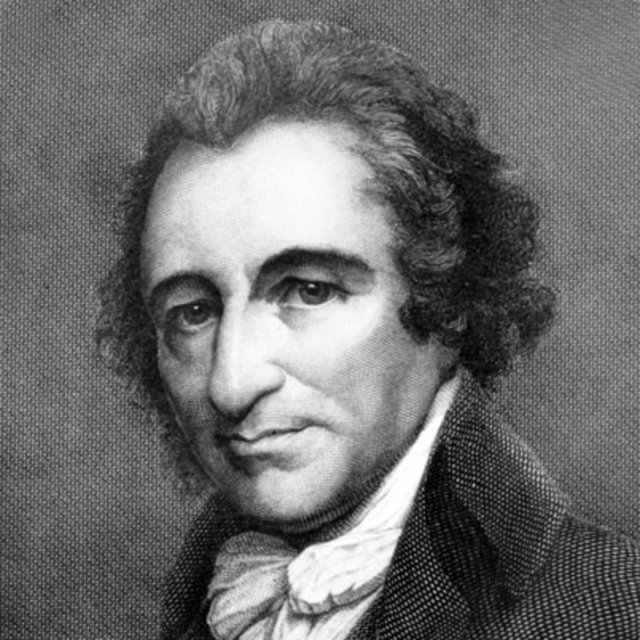
A land value tax is a tax on the value of land, minus structures and improvements. Under capitalistic systems of property, individuals who own land and natural resources are able to use their property in order to exploit others for personal gain. Exploitation is a form of domination. A land speculator can buy land and wait for the surrounding area to develop. As land becomes more scarce in the vicinity and prices are driven up by new developments (schools, roads, and conveniences coming to the area), the owner of the land can use his ownership of that land in order to capture value produced by the community, thereby allowing him to sell the land at an inflated price or rent it at a rate far exceeding cost. This situation allows the emergence of a rentier class that does not have to work for a living but can instead leverage their monopolization of certain resources in order to appropriate wealth generated by others and exploit society. Land and natural resources are not the product of human labor and, therefore, ought not to be subject to private appropriation in the same way that wages are. A person is entitled to the entire product of their labor, which is why an income tax is inherently unjust. However, no man is naturally entitled to monopolize any piece of land or natural resource, nor is he entitled to appropriate the product of another man's labor. Consequently, a policy of collecting land value tax and redistributing the revenue back to society in an egalitarian fashion is desirable. A land value tax eliminates the exploitation/domination of man by landlords.
The concept of land value tax can be interpreted as a form of communal-ownership of land. Under my proposal, all land and natural resources would be communally owned. If individuals or corporations want to use such public resources for private purposes, then the community will charge them rent at the fair market price. Every individual within society, as a member of the community that owns the land, would receive an equal dividend as a share of their portion of revenue generated by ground-rent or land value tax.
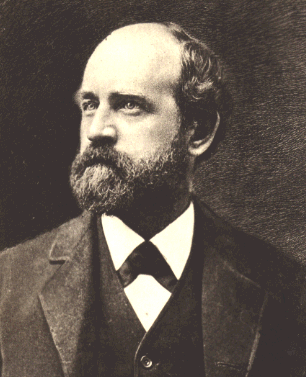
The flip-side of this ground-rent/land value tax scheme is that it would be linked to a citizen's dividend. All individuals, therefore, would be landlords with an equal share of ownership of all land. How else could communal-ownership really be exercised, considering that the "community" is really nothing more than a collection of individuals. Each individual would receive their citizen's dividend which would effectively amount to a universal basic income. This shift to communal-ownership and universal basic income would eliminate domination of man by landlords and domination of man by capitalists. If every individual automatically receives a universal basic income, sufficient to live on, and has access to free healthcare and education, then there is no longer any necessity of selling one's self and time in the wage-labor market. Wage-slavery is abolished in a single swoop. With this transition to libertarian social democracy, we enter a post-capitalism/post-socialism phase of society, transcending the capitalist-socialist dialectic of the last two centuries. The domination of society by capitalists and the necessity of most people working for capitalists as wage-slaves is eliminated, which means the abolition of capitalism proper. The hallmark of capitalism is not the market, but rather the domination of the economic system by the capitalist class. Critics of capitalism have always seen wage labor as the predominant form of "making a living," such that most people must work for capitalists in exchange for wages in order to survive, as the defining characteristic of capitalism.
Anarchism vs. Civ-Libertarianism
An anarchist is someone who seeks to minimize domination of man over man and thereby maximize human liberty. The goal of anarchism and civic republicanism, then, appears to be the same, since the civic republican seeks to minimize domination as well. It would, at first glance, appear to be the case that civic republicanism is, or ought to be, a form of anarchism. This especially seems to be the case when you look at anarchism as defined by Noam Chomsky: anarchism is the conviction that one ought to "seek out and identify structures of authority, hierarchy, and domination in every aspect of life, and to challenge them; unless a justification for them can be given, they are illegitimate, and should be dismantled, to increase the scope of human freedom."(Noam Chomsky, Language and Politics) However, the civic republican and the anarchist define the terms liberty and domination somewhat differently, which leads to somewhat different conclusions. Nevertheless, I would say that civ-libertarianism and anarchism are entirely compatible in principle, although not necessarily coterminous or identical in practice.
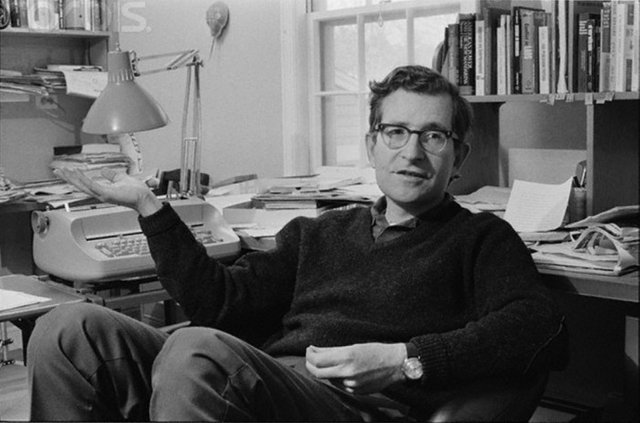
Anarchists tend to have a comprehensive Berlinian definition of liberty, so that freedom to an anarchist means the fullest degree of combined positive and negative liberty. A person is free to the extent that they are both free from intervention/interference and capable of exercising their own will. The anarchist also tends to be somewhat vague on the definition of liberty, such that liberty is more of a sentiment or underlying axiom that needs no definition in their estimation. In all the anarchist literature I've read, I'm not sure I've run across an anarchist writer who bothered to really try to define liberty and work out a clear anarchist conception of liberty, but anarchist writers clearly operate using a combination of Berlinian positive and negative conceptions of liberty. Furthermore, I do not really know of any anarchist who has bothered to really define domination or hierarchy. Instead, they tend to operate on the assumption that their meanings are self-evident and obvious. Some anarchists seem to have a Berlinian negative libertarian conception of domination, while others seem to be closer to the civic republican conception, which probably explains a lot of the disagreements amongst anarchists.
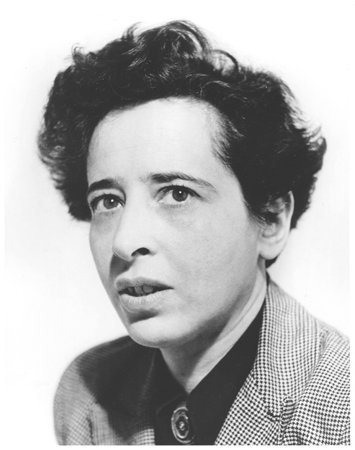
According to the Berlinian negative libertarian conception, domination occurs when another person interferes in one's actions so as to keep one from being able to act in accord with their own will. According to a civic republican conception, such interference only constitutes domination to the extent that it is arbitrary. Suppose that a person lives in a directly democratic community, which uses a consensus-based democratic process to determine rules. If the community intervenes in order to enforce those rules upon a person who has consented to the rules through the democratic deliberative process, then the intervention is not arbitrary and domination has not occurred according to the civic republican conception. If, however, a police officer (or anyone else really) were to use their own discretion to stop a person from doing some thing, in spite of no established democratic rules prohibiting them from doing said thing, then the intervention constitutes arbitrary coercion and domination as far as the civic republican is concerned. One who defines domination in accord with a more Berlinian conception, however, would likely say that any rules, even if those rules are directly democratically established through consensus processes, constitutes domination. Thus, such anarchists tend to oppose democracy and prefer a less orderly model of absolute free association. This explains the divide between the civic/democratic anarchism of Kropotkin, Graeber, and Bookchin and the libertine/individualistic anarchism of John Zerzan, Hakim Bey, and William Gillis. Thus, civ-libertarianism overlaps much with democratic schools of anarchist thought while finding very little or no common ground with anti-civ and egoist anarchism.

Whether or not a civ-libertarian will be an anarchist is entirely dependent upon an evaluation of facts and evidence, and also contingent upon historical circumstances of time and place. The goal of the civ-libertarian is to minimize domination. Whether or not anarchism logically follows from this depends upon whether or not it is possible to create a stateless organization of society that is capable of eliminating statist forms of domination without thereby allowing for the increase of non-statist forms of domination. Murray Bookchin, for instance, opposed consensus-based democracy because he found that it often led to domination in practice. He thought majoritarian direct democracy, however counter-intuitive it may seem, tended to minimize domination whereas consensus processes led to new and worse forms of domination. I'm not so sure Bookchin's assessment was entirely correct and I personally happen to find the pro-consensus ideas of David Graeber and Abdullah Öcalan more intriguing. The bottom line is that more anarchic forms of social order may actually lead to certain forms of domination in practice, such that a purely anarchist society might actually lead to a society with more domination overall than might occur under a libertarian social democratic State. Whether or not this is the case is a matter of fact, not of ideology or philosophy. Thus, a libertarian social democrat or civic republican libertarian could very well be an anarchist, supposing that their assessment of the evidence suggests to them that a stateless organization of society would actually reduce domination more than any other arrangement in practice as well as in theory. Furthermore, a person could also be a civ-libertarian philosophical anarchist, holding that anarchism does maximize republican liberty in theory but might not always be preferable to statist arrangements in practice. Furthermore, the desirability of anarchic arrangements might very well vary with both historical circumstances and with locale.
We do not live in an ideal world. It may actually be the case that total liberty or absolute freedom from domination is not possible under any social or political arrangement whatsoever. Whether or not anarchism is the correct position depends upon whether or not an anarchistic social order really is best at securing the greatest amount of liberty (non-domination) possible. If anarchism cannot provide enough stability, security, order, distributive justice, and welfare provisions to maximize liberty to an extent beyond the maximum which could be had under a social democratic State, then it follows that a social democratic State is preferable to an anarchistic social order. I am inclined to believe that a social democratic State with land value tax and universal basic income would be capable of providing more liberty overall. I am not convinced that social anarchy has the ability to scale up and, consequently, suspect that anarchists will always end up failing on the distributive justice and welfare fronts. In the past, I have even advocated anarchist social democracy as a variety of libertarian social democracy.
Furthermore, I ought to remark here that classical social democracy itself is not necessarily incompatible with civic/democratic forms of anarchism. Classical social democratic thought was rooted in socialist and marxist philosophy and, consequently, did sometimes share the notion that the establishment of full communism, a classless/stateless society, was possible and would eventually occur. (Cf. William Morris, Socialism and Anarchism)
"The social democratic approach is impatient of the theoretical conceits favoured by liberal democratic philosophies. It is an abstraction to think of all individuals as equal partners in the organization of social and political life and to consider what institutions they might approve, for example, in a hypothetical state of nature. The social democrat rejects this sort of idealization. His starting point is the actual historical condition within which the state is already a potent reality....
"The open-endedness of the social democratic perspective means that what is ultimately supported may even be non-statist in character. The fact that we start with the potent state does not mean that we are prohibited from arguing, for example, that the way for the state to maximize equal dignity is for it to restrict or devolve its own power: to efface itself, if not to wither away. The social democratic perspective is distinguished by the broad domain which it assigns to democratic concern, not by any detailed presuppositions about where the concern will lead."—Philip Pettit (Towards a Social Democratic Theory of the State)
Revolution vs. Conservation/Centralization vs. Decentralization/Direct Democracy vs. Representation
The idea of justice as minimizing domination helps to determine when one ought to be pro-revolution and when one ought to be anti-revolution. Civ-libertarianism tends to make one a progressive, an advocate of improving society by reform, rather than a revolutionary or a conservative per se. A libertarian within the civic republican tradition is neither inherently revolutionary nor inherently reactionary. Yet, even a conservative would support a revolution given the right context. So, how does one know when to support revolution and when to avoid it? A libertarian in the civic republican tradition would only support revolution on the condition that revolution appears to be the most probable means of approximating justice or maximizing liberty as non-domination. Thus, whether one ought to be for revolution or opposed to it is contingent upon facts, circumstances of time and place, and probability. The civ-libertarian position exists in a state of historical indeterminacy, by which I mean that the correct position is contingent upon the observations of a civ-libertarian within a particular historical context. (I am here using quantum indeterminacy as an analogy for the contingency of the civ-libertarian position upon historical circumstances.)
The civ-libertarian, I suppose, ought to have a distributist approach to the question of centralization/decentralization, such that they apply a criterion of subsidiarity to the question. A civ-libertarian conception of subsidiarity would hold that all desirable tasks ought to be handled by the most local and least centralized level of organization capable of competently completing them in a way that tends to minimize domination overall. This means, as with the question of anarchism and revolution, the civ-libertarian position will differ with variations in historical circumstances of time, place, and facts.
Furthermore, a civ-libertarian may support either conventional representative democracy or some form of direct democracy, or virtually anything in between, depending on which system seems most likely to maximize republican liberty and minimize domination of man over man within the context of present historical circumstances.
There are instances when more direct democracy and decentralization would actually result in an increase in domination and reduction of liberty overall. I have discussed this topic in more detail in my post On Centralization and Representation: A Dialectical Libertarian Approach.
Whether civ-libertarianism is for centralization or decentralization, as well as whether it favors representative or directly democratic arrangements, is contingent upon historical circumstances of time and place and the individual's evaluation of whether or not these tend to reduce or increase republican liberty in a given historical context. The civ-libertarian position often exists in a state of historical indeterminacy and must be discovered by the human subject who wishes to make observations about society.
What About Cops?
Policing is an institution that is predicated on domination of man over man. A cop has arbitrary authority over other human beings. A civ-libertarian position requires that we either abolish policing or reform policing in a manner that reduces domination and thereby increases republican liberty. I have written extensively on this topic in previous posts and may perhaps revisit it in a future post.
Comments and feedback are welcome. What are your thoughts? What pros/cons do you see with such a civic republican conception of justice as minimizing domination? What are your thoughts on my approach overall?
Its been so long to see your valuable posts again, good to see u, your political philosophy is amazing. have you studied law?
No, not really.
liberals fighting with in the system sometimes makes it even worse but thanks for sharing and highlighting this
Such a wonderful and interesting topic for blogging by @ekklesiagora sir...
Libertarian socialism is a Western philosophy with diverse interpretations, though some general commonalities can be found in its many incarnations. It advocates a worker-oriented system of production and organization in the workplace that in some aspects radically departs from neoclassical economics in favor of democratic cooperatives or common ownership of the means of production (socialism). They propose that this economic system be executed in a manner that attempts to maximize the liberty of individuals and minimize concentration of power or authority (libertarianism).
Actualy my politics knowledge is not good ..but I'm really like political science...
Cheers~~~
Great post
we know something new in this post because some famous person's information here
thanks for sharing this post
Excellent post you have written lot of time you have given to it thanks for sharing
No social order is currently present to follow like previously